|
Spring 2017
MEWS & NEWS
|
|
|
The Latest and Greatest in Flea Control – Bravecto
Trying to find your kitty and remembering to treat monthly for fleas can be challenging, but fortunately there is a new topical prduct, Bravecto, that is applied every three months. Less frequent treatment is less stressful to both you and your kitty. Proper flea treatment requires treating the environment and the cat for 3-6 months a row for success. Purchase 2 doses of Bravecto and receive a $15 mail in rebate! Cats with fleas have a 50% chance of also having tapeworms, so don’t forget deworming too. Tapeworms look like white segments on a cat’s rear and when dried look like small sesame seeds on the bedding or around the hind legs…
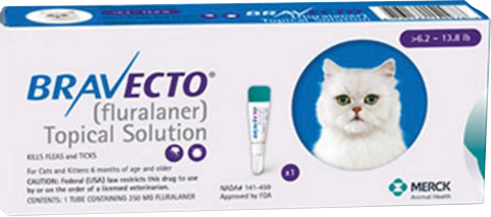
|
|
| CCC Employee of the Year 2016
We are pleased to announce that Melinda Henry, RVT is our 2016 employee of the year! Melinda joined our team in May of 2013. Melinda always offers top-notch care to both her patients and their parents. She truly deserves this huge honor. From Melinda: “Working with animals has been a lifelong mission and a strong passion of mine. I have always known that I wanted to work with animals and was surrounded by many types of animals for most of my life. Working with animals is where I am the happiest because I know that I am making a difference. I have always seized the opportunity to embrace new experiences which led me to The Cat Care Clinic. Working at The Cat Care Clinic has given me a way to embrace my passion to help animals and help educate pet parents to better understand and care for their furry family members. I have had so many great experiences working at The Cat Care Clinic and I am looking forward to continuing to contribute to the success of the clinic.” |
|
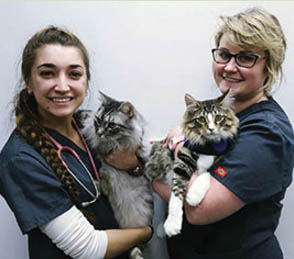 Additions to our RVT Team Additions to our RVT Team
Many veterinary clinics don’t have any licensed technicians on their teams. We are lucky enough to have nine! Keri and Alexia both recently passed two difficult tests to become Registered Veterinary Technicians. We are very proud of them. They are important members of our team – providing excellent care to our feline patients. |
|
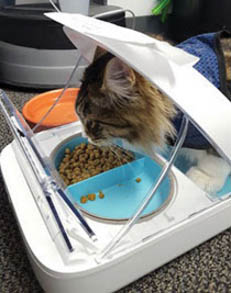 Problem Feeding Issues Solved! Problem Feeding Issues Solved!
Feeding cats different diets and portions are difficult especially if they shouldn’t be eating the same thing. If they eat each other ‘s food, then they’re not getting the desired dietary responses. Is this a problem in your home? The Sure Flap Feeder solves this dilemma and can also achieve individual portion control. This feeder will only open up when it detects a specific cat’s microchip or collar chip. It keeps food fresh all day, even canned food, with its airtight seal. One feeder can be programmed for multiple cats which is beneficial if you have a nosy dog that tries to sneak cat food. The Sure Flap Feeder allows you to control a special or regular diet. It also helps you see exactly how much food each cat is eating if only one is assigned to the bowl. Our cat Ollie loves his bowl and can give you a demonstration when you visit the clinic. Let us know if you want to order this great invention. |
|
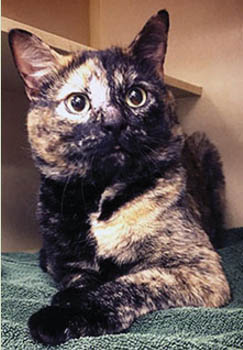 Meet Harvey – A Unique Boy Meet Harvey – A Unique Boy
Have you ever wondered why tortoiseshell and calico cats are female? It’s based on gene tics. Female animals have two “X” chromosomes and each chromosome has parts that are “turned on'” to express a specific color such as white, black, or brown. An “XY” chromosome pairing is found in male animals. Males lack the ability to turn on or off certain chromosomes that produce specific patterns like tortoiseshell or calico. Interestingly, there is that rare chance that males can have the calico or tortoiseshell coloration by having a chromosomal pattern of “XXY”. In this unusual occurrence, the two X chromosomes allow the cat to turn on a specific color/pattern while having the ‘Y’ chromosome results in a male cat. Males with three chromosomes are typically sterile. Sterile cats may still have reproductive organs but are unable to produce offspring. Recently, we treated a male tortoiseshell named Harvey Harris. He was neutered and out of medical curiosity, we checked for sperm in his removed testicles – the results? He had none! It was quite fascinating. Harvey is a unique kitty. |
|
No Lilies For Kitty
Pet Poison Awareness Month is almost over but we have one last post to share. With Easter coming up around the corner, we want to share one of the most common and dangerous poisons to our feline family members The time from ingestion or exposure to the time of treatment is extremely important with lily toxicity. If you suspect or know your cat has been exposed to any lily, please seek immediate veterinary care.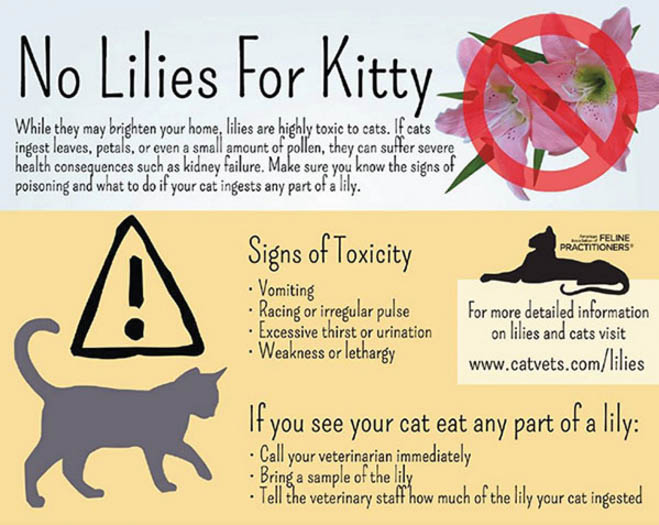 |
The Cat Care Clinic
2638 N. Tustin Street, Orange, CA 92865
Phone: 714-282-2287
http://www.catcare.com |
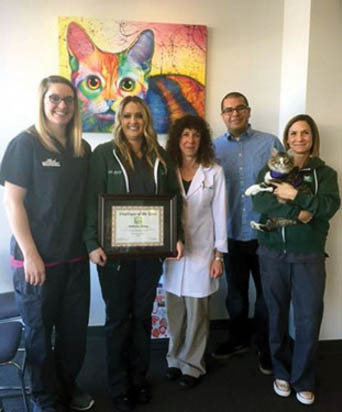



 Additions to our RVT Team
Additions to our RVT Team Problem Feeding Issues Solved!
Problem Feeding Issues Solved! Meet Harvey – A Unique Boy
Meet Harvey – A Unique Boy